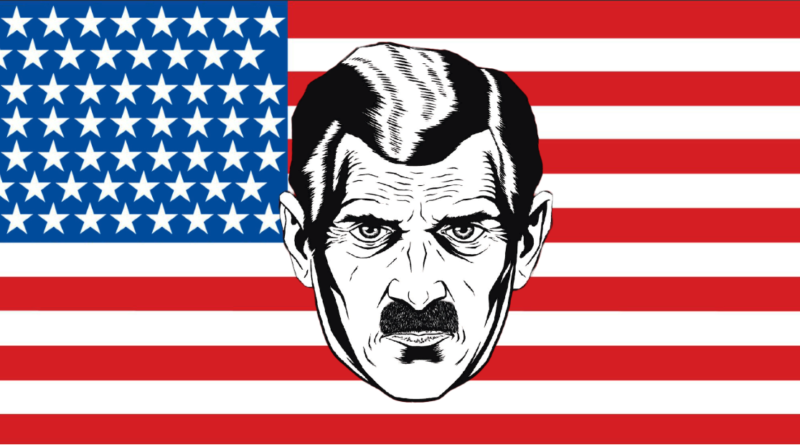Literally 1984
Three states rise above the ashes of a nuclear war, and their governments have taken a common path to lead their people: total control. Free thought is banned, history is constantly rewritten, and your loyalty should only be to the Party. George Orwell’s novel “1984” warns of the danger of a state where the population is forced into submission to their government. Written in post-World War II, Orwell takes inspiration from Nazi Germany and the rise of Stalinism. He writes in an effort to highlight the importance of humanity resisting such ideologies.
The book follows Winston Smith, a man who lives in the nation of Oceania. Winston is a member of the Party and works in the Ministry of Truth, a department specializing in propaganda. The Party is a totalitarian government led by Big Brother, the symbol of an all-knowing and powerful leader. In order to maintain stability and control, the Party has prohibited any expression of individuality. The Party resorts to constant surveillance of its citizens. Thinking and writing thoughts that are different from what the Party deems as fact is illegal. This oppression and control frustrates Winston and leads him to find a like-minded individual, Julia. Together, they ignore the laws created by the Party, freely express themselves, and share an ultimate goal—to bring an end to totalitarian rule.
“1984” is one of the most popular dystopian science fiction novels. Although in a common genre, it stands out from the rest with its simple premise written into a grounded and richly developed reality. The world of “1984” feels like a possible future and fulfills its purpose as a warning. The 24/7 surveillance, blind support of the government, and distortion of facts is all too real.
“An intelligent portrayal of and warning against the evils of totalitarianism and extreme authoritarianism of any kind… a story not solely about power, corruption and lies, but also about love, truth and the human spirit, Nineteen Eighty-Four works on so many, many levels,” describes the “Bookish Elf.”
The praise George Orwell received for “1984” is well-deserved. For a book over 70 years old, it still manages to stay relevant in the media and the minds of readers. “1984” especially spiked in popularity during Donald Trump’s presidency—with both sides of the political spectrum accusing the other of attacking democracy, distorting facts, spreading propaganda, and trying to assert more control over citizens.
Some recent similarities to “1984” occurred in resistance to mask and vaccine mandates during the pandemic through the belief in the connection of the Party’s suppression of free will to further its interests, and a government’s attempt to stop the spread of disease. Another example happened during Barack Obama’s second term, where the Obama administration tried to hide the fact that the National Security Agency was spying on people’s electronic communications and collecting data from internet service providers like Verizon; an eerie parallel to the level of surveillance done on citizens in “1984”. A very recent example was in the January 6 Insurrection, where Trump’s followers blindly accepted his claims as fact, including that the 2020 election results were illegitimate. As a result, they made an attempt to attack democracy and change the results.
China’s totalitarian regime through its increased surveillance, suppression of free will, and rewriting of history, however, serves as the largest example of Orwell’s vision with its striking similarities to the Party.
It’s all too similar.

